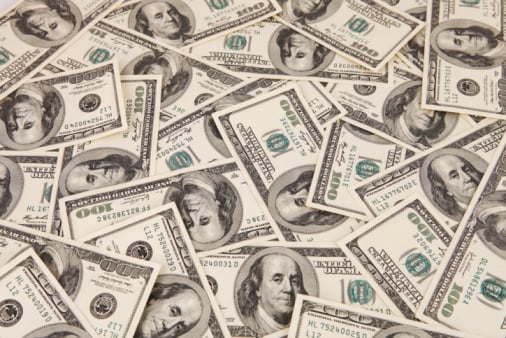
Source: Thinkstock
In a report titled, “The Potential Macroeconomic Effect of Debt Ceiling Brinkmanship,” published Thursday by the U.S. Treasury, the threats are made clear:
[A] default would be unprecedented and has the potential to be catastrophic: credit markets could freeze, the value of the dollar could plummet, and U.S. interest rates could skyrocket, potentially resulting in a financial crisis and recession that could echo the events of 2008 or worse.
The Treasury’s report uses the 2011 impasse over raising the debt ceiling as a guide to what could happen if a U.S. default does indeed occur. The report points out that from the second to third quarters of 2011, U.S. household consumption fell by $2.4 trillion. Wider spreads between Treasury yields and mortgage loan rates lowered mortgage borrowing and lengthened a housing market collapse.
The Treasury’s report concludes:
In the event that a debt limit impasse were to lead to a default, it could have a catastrophic effect not just on financial markets but also on job creation, consumer spending, and economic growth — with many private-sector analysts believing that it would lead to events of the magnitude of late 2008 or worse, and the result then was a recession more severed than any seen since the Great Depression.
The report also notes tentative signs that the current debate over the debt ceiling are beginning to affect financial markets. Most of what the Treasury says in the six-page report will not be news to anyone who paid attention to the fiasco in 2011, or who has been following the latest goings-on in Washington. It does offer a concise view of what a default on the debt could mean.
Take This Retirement Quiz To Get Matched With A Financial Advisor (Sponsored)
Take the quiz below to get matched with a financial advisor today.
Each advisor has been vetted by SmartAsset and is held to a fiduciary standard to act in your best interests.
Here’s how it works:
1. Answer SmartAsset advisor match quiz
2. Review your pre-screened matches at your leisure. Check out the
advisors’ profiles.
3. Speak with advisors at no cost to you. Have an introductory call on the phone or introduction in person and choose whom to work with in the future
Take the retirement quiz right here.
Thank you for reading! Have some feedback for us?
Contact the 24/7 Wall St. editorial team.



